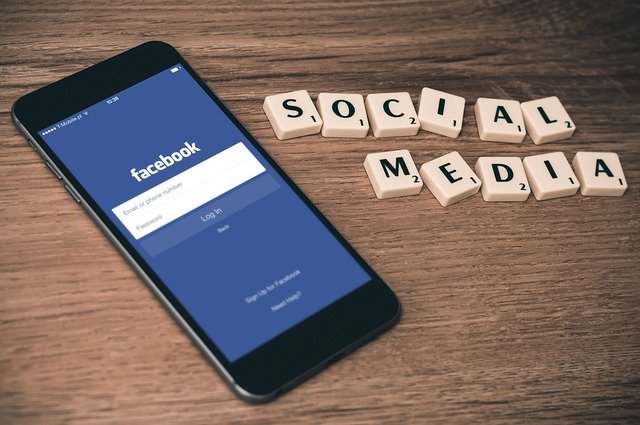Technology's Role in Modern Mental Health Care and Treatment
Technology plays an increasingly important role in our daily lives, influencing how we work, connect, and relax. Exploring the relationship between digital tools and mental wellbeing can help us understand healthy habits, balance screen time, and make thoughtful choices that support overall wellness.

The intersection of technology and mental health represents one of the most significant developments in healthcare over the past decade. As digital solutions become increasingly integrated into our daily lives, understanding their impact on psychological well-being has become crucial for both healthcare providers and individuals seeking support.
How Technology Impacts Mental Health in Daily Life
Technology’s influence on mental health operates through multiple channels, creating both positive and negative effects. Social media platforms can foster connection and community support, yet they may also contribute to comparison culture and cyberbullying. Screen time exposure, particularly before bedtime, can disrupt sleep patterns and affect mood regulation. Research indicates that excessive technology use may correlate with increased rates of anxiety and depression, particularly among younger demographics.
The constant connectivity enabled by smartphones and digital devices has created an always-on culture that can heighten stress levels. Notification fatigue, information overload, and the pressure to maintain an online presence contribute to what researchers term “digital overwhelm.” However, technology also provides unprecedented access to mental health resources, educational materials, and support networks that were previously unavailable to many individuals.
Teletherapy and Online Counseling Services Revolution
The rise of teletherapy and online counseling services has democratized access to mental health care, breaking down geographical and logistical barriers. These platforms connect individuals with licensed therapists through video calls, messaging, and phone sessions, making professional support available to those in remote areas or with mobility limitations.
Online counseling services offer several advantages, including increased privacy, flexible scheduling, and often reduced costs compared to traditional in-person therapy. Many platforms provide specialized matching algorithms to connect clients with therapists who specialize in their specific concerns. The COVID-19 pandemic accelerated adoption of these services, with many traditional therapy practices transitioning to hybrid models that incorporate both in-person and virtual sessions.
Understanding How Technology Affects Anxiety and Depression
The relationship between technology use and anxiety and depression is complex and multifaceted. Social media platforms can trigger anxiety through social comparison, fear of missing out (FOMO), and exposure to negative news cycles. The dopamine-driven design of many apps and platforms can create addictive usage patterns that interfere with real-world relationships and activities.
However, technology also offers powerful tools for managing anxiety and depression. Meditation apps, mood tracking applications, and cognitive behavioral therapy (CBT) programs provide accessible interventions for individuals experiencing mental health challenges. These digital tools can complement traditional therapy or serve as standalone resources for those with mild to moderate symptoms.
Digital Mental Health Tools and Applications
The digital mental health landscape includes a diverse array of applications and tools designed to support psychological well-being. Mood tracking apps help users identify patterns and triggers, while mindfulness applications guide users through meditation and relaxation exercises. Crisis intervention apps provide immediate access to support resources and emergency contacts.
Artificial intelligence and machine learning technologies are increasingly being integrated into mental health applications, offering personalized recommendations and adaptive interventions. These tools can analyze user behavior patterns and provide customized support based on individual needs and preferences.
| Service Type | Provider Examples | Cost Estimation |
|---|---|---|
| Teletherapy Platforms | BetterHelp, Talkspace | $60-$100 per week |
| Crisis Text Services | Crisis Text Line | Free |
| Meditation Apps | Headspace, Calm | $5-$15 per month |
| Mood Tracking Apps | Daylio, Mood Meter | Free to $5 per month |
| Online Therapy Groups | 7 Cups, Support Groups | $10-$40 per session |
Prices, rates, or cost estimates mentioned in this article are based on the latest available information but may change over time. Independent research is advised before making financial decisions.
The Future of Technology in Mental Health Care
Emerging technologies continue to reshape the mental health landscape. Virtual reality therapy shows promise for treating phobias and PTSD, while wearable devices can monitor physiological indicators of stress and anxiety. Artificial intelligence chatbots are being developed to provide immediate support and triage services, though they cannot replace human therapeutic relationships.
The integration of technology into mental health care requires careful consideration of privacy, security, and clinical effectiveness. Regulatory frameworks are evolving to ensure that digital mental health tools meet appropriate standards for safety and efficacy.
Technology’s impact on mental health represents both an opportunity and a challenge for individuals and healthcare systems. While digital tools have made mental health resources more accessible and affordable, they also require thoughtful implementation and use. The key lies in leveraging technology’s benefits while mitigating potential risks, creating a balanced approach that supports overall psychological well-being. As this field continues to evolve, ongoing research and clinical validation will be essential to maximize the positive impact of technology on mental health outcomes.
This article is for informational purposes only and should not be considered medical advice. Please consult a qualified healthcare professional for personalized guidance and treatment.




